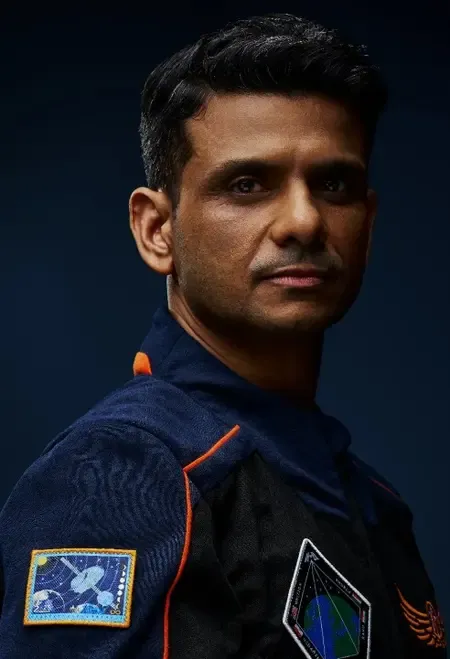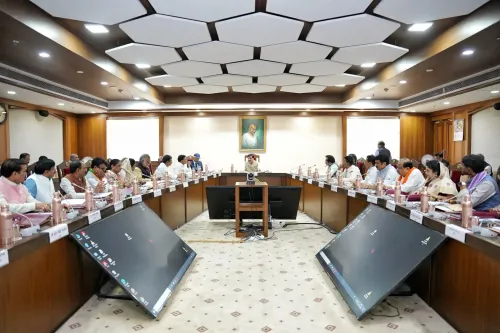Is Indian Astronaut Shubhanshu Shukla Set to Make Scientific History in Space?

Synopsis
Key Takeaways
- Group Captain Shubhanshu Shukla will conduct critical experiments in space.
- India's space economy is poised for significant growth.
- The Gaganyaan mission represents India's human spaceflight ambitions.
- Post-2014 reforms have transformed India's space sector.
- Deep ocean exploration is also a governmental priority.
New Delhi, June 3 (NationPress) It is indeed a point of national pride that an Indian astronaut is taking on significant scientific duties in an international mission, stated Union Minister of State for Science and Technology (Independent Charge) Dr. Jitendra Singh on Tuesday. He announced that Group Captain Shubhanshu Shukla will engage in a series of essential scientific experiments in space.
This announcement signifies a monumental step in India's expanding role in global space exploration.
Dr. Singh, who also oversees the Prime Minister’s Office and the Space Department, mentioned that Group Captain Shukla’s research will span various scientific fields.
These include examining physical, cognitive, and physiological responses in space, along with the impact of prolonged electronic display use in microgravity—a critical factor for future extended missions.
The astronaut will further explore skeletal muscle dysfunction in microgravity and test potential therapeutic interventions to mitigate its impacts.
In addition, he plans to conduct experiments with extremophiles like Tardigrades, tiny organisms renowned for thriving in extreme conditions.
Such experiments could enhance our comprehension of how life may persist beyond Earth.
Group Captain Shukla stands among the four astronauts chosen for India’s ambitious Gaganyaan human spaceflight mission, slated for launch in early 2027.
He will also participate in the forthcoming Axiom-4 mission to the International Space Station (ISS), with Group Captain Prasanth Nair appointed as the backup.
The minister underscored that discussions regarding sending an Indian astronaut to the ISS were part of Prime Minister Narendra Modi’s recent trip to the United States.
He attributed the post-2014 policy reforms in the space sector—such as opening Sriharikota to the public and inviting private sector involvement—as vital to India’s rise as a leader in NewSpace initiatives.
Regarding Gaganyaan, Dr. Singh noted that the trial phases are currently in progress, and once finalized, India will make a substantial leap towards being Atmanirbhar (self-reliant) in the space sector.
He referred to these space experiments as ‘game-changers’ that will significantly enhance the country's space ecosystem.
Singh also highlighted that India’s space economy is projected to expand fivefold, from $8 billion to $44 billion, aligning with the government’s long-term vision of Viksit Bharat @2047.
He remarked that 2014 marked a significant turning point when PM Modi opened the space sector to private entities, foreign investments, and global partnerships.
Beyond the realm of space, the Minister addressed the government’s focus on deep ocean exploration, expressing that India’s extensive coastal resources are still largely untapped.
The Deep Ocean Mission aims to unlock the potential of the marine economy.
He also emphasized India's commitment to clean energy, with increased funding for nuclear energy research and the development of Bharat Small Modular Reactors, crucial for achieving Net Zero emissions by 2070.









